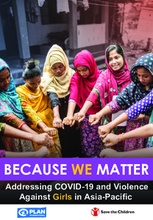Displaying 131 - 140 of 1070
This paper examines experts' perceptions of the aims and outcomes of public inquiries, before moving on to consider whether there are more effective and efficient ways of investigating national scandals.
This article describes the local training model developed to implement Strong Communities for Children, a community-based child maltreatment prevention initiative in Israel, and presents a qualitative analysis of field journals maintained by three waves of students.
The present study analysed associations between threat and deprivation exposure and different facets of emotion understanding in a sample of maltreated children in foster care.
This volume adopts a context-informed framework exploring risk, maltreatment, well-being and protection of children in diverse groups in Israel.
In this How We Care series webinar, Family for Every Child members CPTCSA (Philippines), Paicabi (Chile) and Butterflies (India) come together to discuss the work they are doing to address child sexual abuse in their contexts.
This thematic policy brief from Save the Children and Plan International aims to seek and secure commitment from regional and national leaders to urgently prioritize and invest consistently in the protection of girls, who are disproportionately exposed to multitude forms of violence and their devastating consequences.
Este webinar é destinado aos actores políticos em cargos de tomada de decisão e profissionais da proteção das crianças de países lusófonos e pretende examinar os problemas de protecçao criados pela pandemia COVID-19 e explora estratégias de prevenção e de resposta com vista a fortalecer a proteção da criança.
The objective of this study was to explore the effects of previous maltreatment on current self-representations (i.e., the attributes used to describe oneself) of youth in residential care and the moderating role of gender, age, number of previous placements and length of placement in residential care.
This paper compares incidence data on Black and White families investigated by Ontario’s child welfare system over a 20-year period.
In this study the authors examined the relative contributions of maternal versus paternal criminal offending or mental health problems in relation to the time to the offspring’s first report to child protection services, or first placement in out of home care (OOHC), using administrative records for a population sample of 71,661 children.

